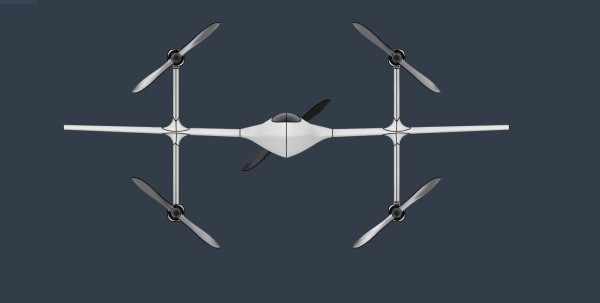A North Salt Lake-based aerospace company is developing autonomous unmanned aerial vehicles designed to transform logistics, surveillance, and emergency response operations across military and civilian sectors. SkyRovr combines artificial intelligence, aerospace engineering, and tactical expertise to create drone systems capable of operating in high-risk environments where traditional delivery and surveillance methods fall short. The company’s approach centers on developing versatile drone platforms that can adapt to diverse operational requirements. Their engineering team focuses on creating reliable systems for industries ranging from e-commerce and agriculture to security and emergency response, addressing critical gaps in current drone capabilities.

At the core of SkyRovr’s innovation is a patented non-landing delivery system (US20250051044) that enables drones to complete missions without touching down in potentially hazardous areas. This technology proves particularly valuable for battlefield resupply operations, disaster zone deliveries, and urban logistics where landing zones may be compromised or unavailable. An immediate use case of the company’s patented system is enabling drones to deliver critical supplies such as medicine, organs, small equipment, and packages directly to rooftop pods of hospitals or high-rise buildings, ensuring fast, contactless delivery without requiring landing. The company has developed two flagship platforms that demonstrate its dual-use philosophy. The SkyRovr VORTEX and RAPTOR models represent different approaches to autonomous flight, each engineered for specific mission profiles while maintaining the flexibility to serve both military and commercial applications.
Military experience shapes the company’s design philosophy, with founder Shan Khadka (Sushant) bringing tactical knowledge that guides the development of systems designed for real-world deployment. This background translates into drone technology that prioritizes reliability and performance in challenging conditions, whether supporting troops in combat zones or delivering medical supplies to disaster areas. The push toward autonomous mobility represents a significant shift in how organizations approach logistics and surveillance challenges. By removing human operators from dangerous situations while maintaining operational effectiveness, these systems offer new possibilities for mission success across multiple sectors.
Government agencies seeking scalable UAV solutions face increasing pressure to modernize their capabilities while managing costs and risks. The dual-use nature of platforms developed by Utah companies allows for technology transfer between military and civilian applications, maximizing return on investment while advancing capabilities across multiple domains. Commercial partners in industries such as e-commerce and agriculture benefit from advances developed initially for military applications. The same autonomous navigation systems that guide drones through contested airspace can optimize delivery routes in urban environments or monitor crop health across vast agricultural operations.
The engineering challenges involved in creating truly autonomous systems extend beyond basic flight control. SkyRovr’s team works on integrating artificial intelligence that can make split-second decisions, adapt to changing conditions, and complete missions without constant human oversight. This level of autonomy becomes crucial when operating in environments where communication links may be disrupted or delayed. Investment interest in the drone sector continues to grow as the technology matures and regulatory frameworks evolve. Companies demonstrating both technical capability and practical applications attract attention from venture capital firms and strategic investors looking to participate in the emerging drone economy.
The future of UAV-based operations depends on continued innovation in areas such as battery technology, sensor integration, and artificial intelligence. As these technologies advance, the potential applications for autonomous drones expand, creating new opportunities for companies positioned at the intersection of aerospace engineering and software development. For emergency responders, the ability to deploy autonomous drones quickly can mean the difference between life and death. Whether assessing damage after natural disasters, searching for missing persons, or delivering critical supplies to isolated areas, these systems provide capabilities that complement traditional response methods. The transition from remotely controlled to fully autonomous operations represents a fundamental shift in how society views and utilizes drone technology. As companies like SkyRovr continue pushing the boundaries of what’s possible, the integration of autonomous UAVs into daily operations across multiple industries moves from concept to reality.
Media Contact
Organization: Gulf Coast Brands LLC
Contact Person: Get Featured Today
Website: https://getfeaturedtoday.io
Email: Send Email
Country:United States
Release id:30590
Information contained on this page is provided by an independent third-party content provider. Binary News Network and this Site make no warranties or representations in connection therewith. If you are affiliated with this page and would like it removed please contact [email protected]



Comments